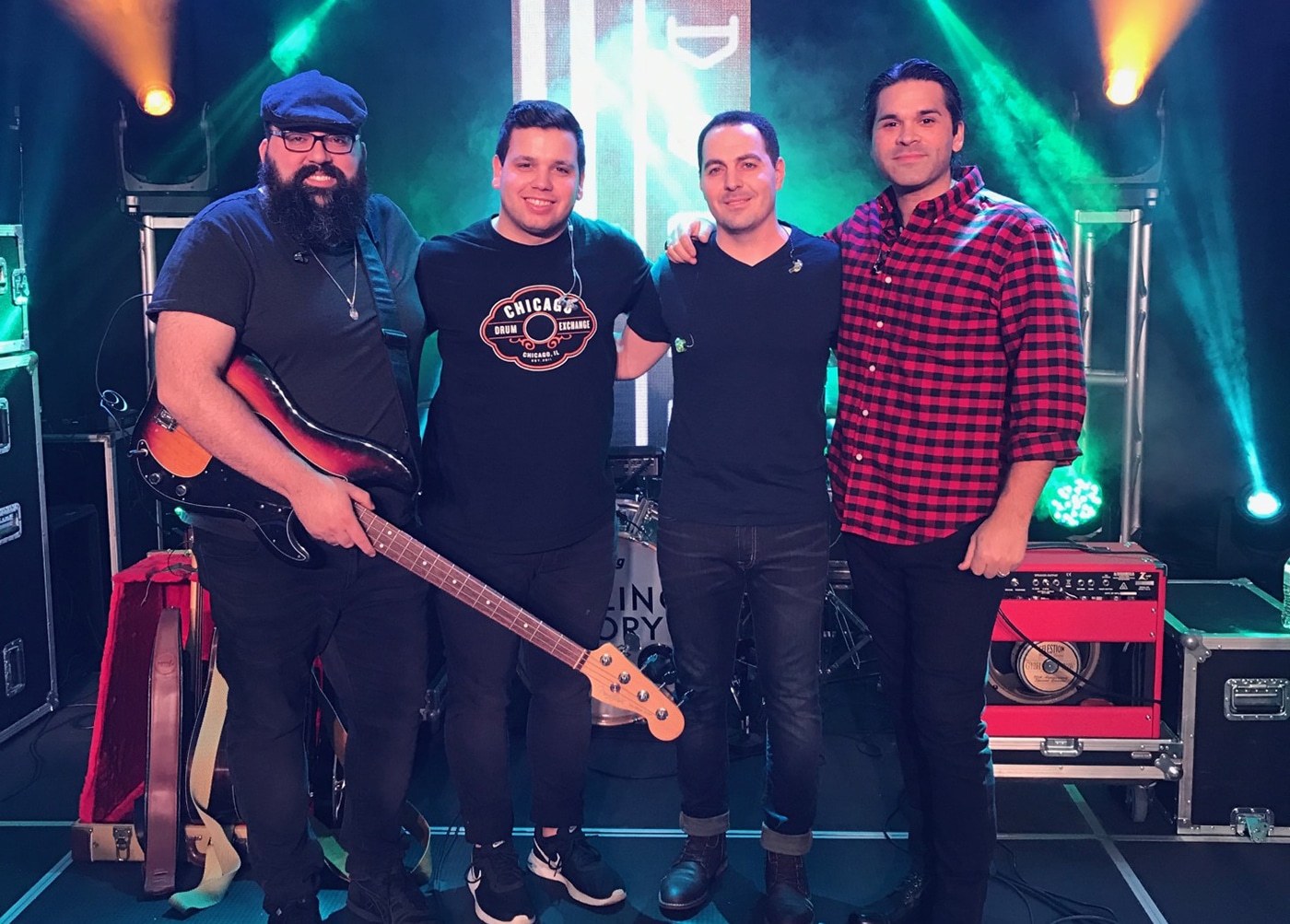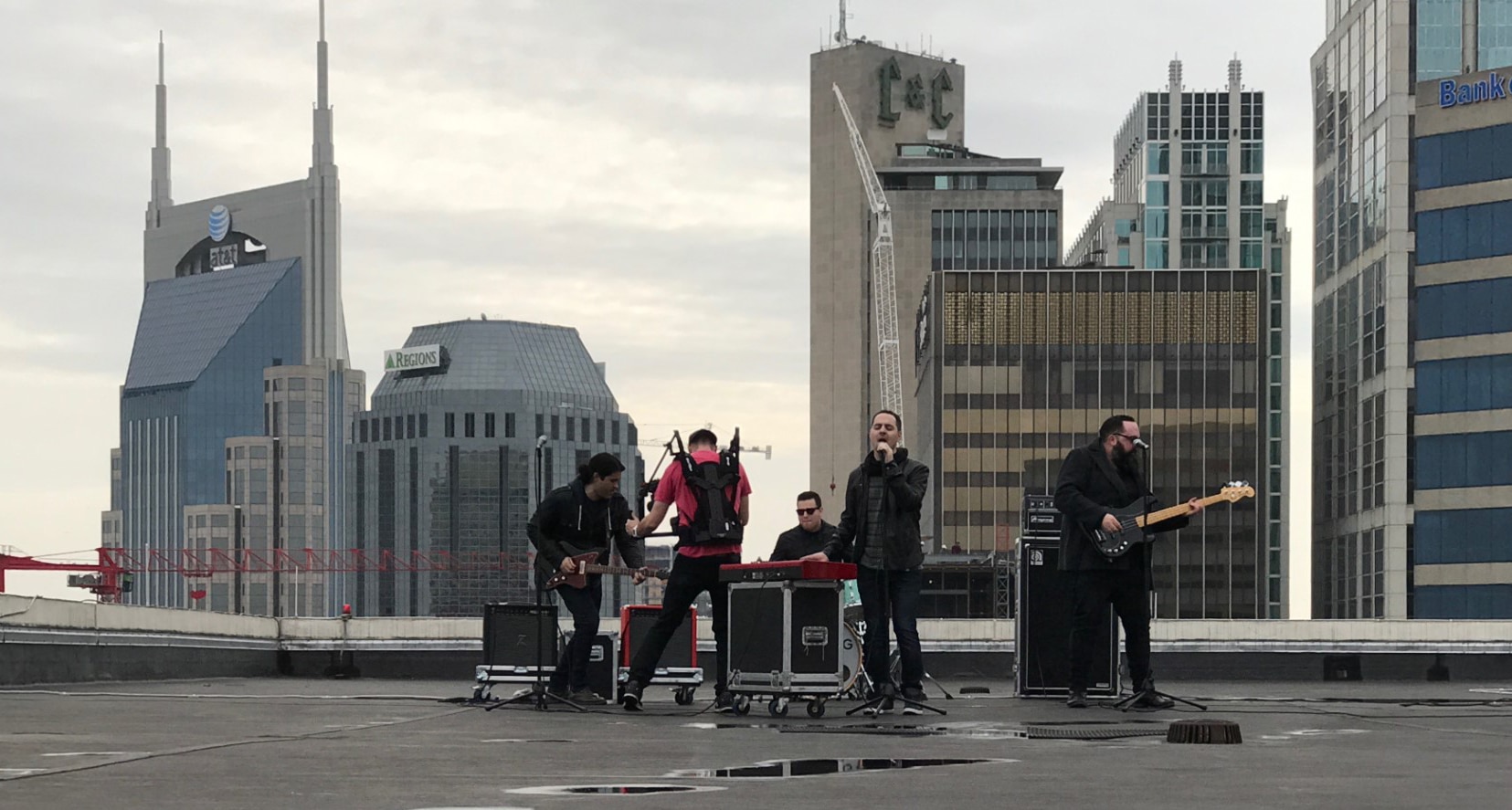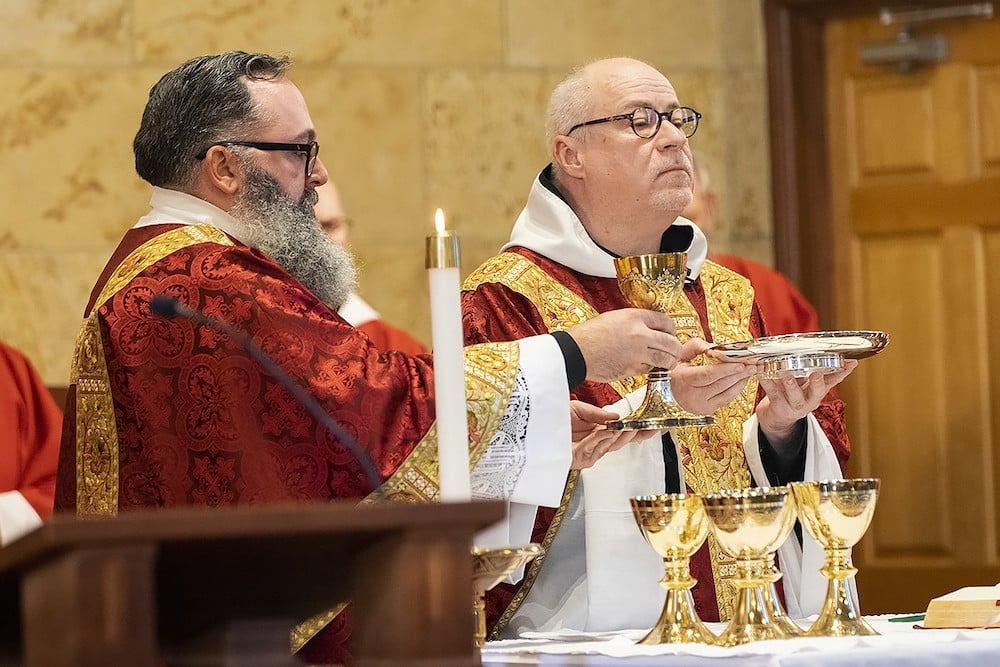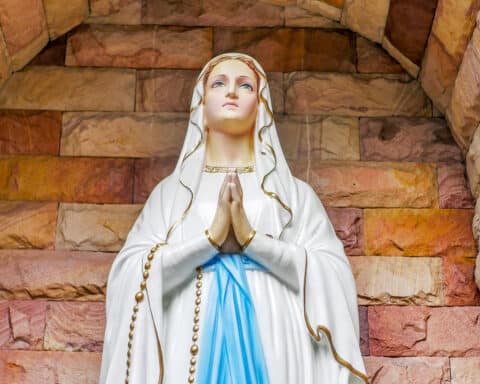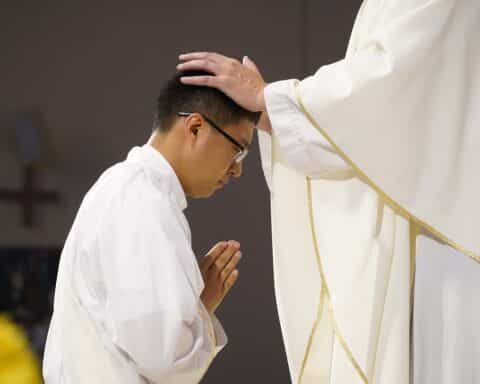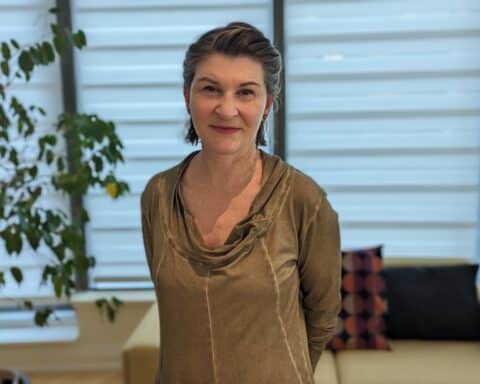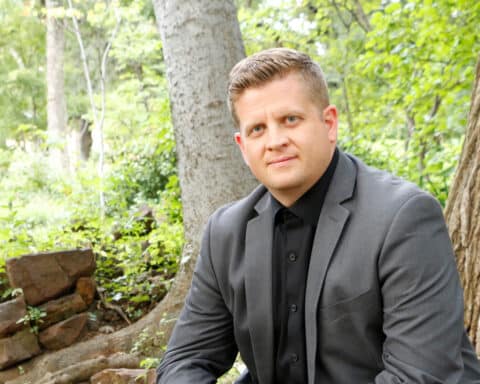Ahead of his ordination to the priesthood, Deacon Andrew Crabtree remembers clearly the moment he offered his life to God.
“I remember one day I was at Mass and I was frustrated with work, frustrated with everything,” he told Our Sunday Visitor. “I just remember kneeling down right before Mass and saying, ‘Lord, I’ve done it my way. I’ve done everything I could to do what I want. But now I finally just give it over to you.”
“I’ll just kind of hand over my life to you,” he prayed, “and do with it what you will.”
What happened next led Deacon Crabtree — a Catholic convert and a musician with hit songs on the Billboard Christian Charts — to consider becoming a priest.
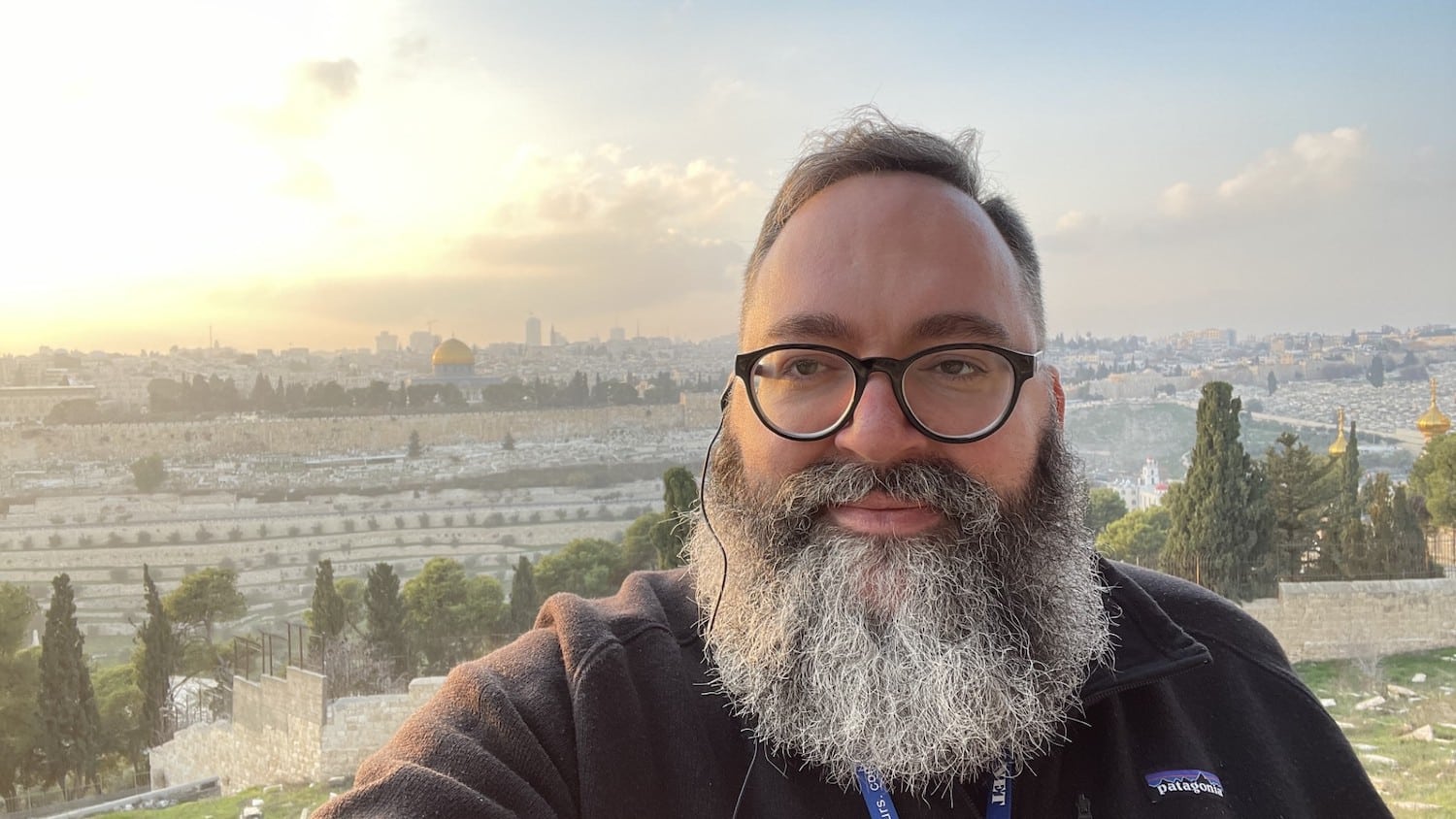
“Within five seconds, one of the church members came up to me and tapped me on the shoulder and said, ‘Hey, Drew, would you mind help leading us in a hymn? We don’t have a priest today.'”
The encounter shocked Deacon Crabtree: He had been asked to step in when there was no priest, immediately after placing his life in God’s hands.
“I knew it was sort of a test and I went, ‘Yeah, sure,'” he remembered. “Because that’s not something I do, I’m pretty introverted.”
It was a test he passed. On June 10, the 35-year-old deacon based in Athens, Tennessee, will be ordained a priest for the Diocese of Knoxville at the Cathedral of the Most Sacred Heart of Jesus.
Becoming Catholic
Deacon Crabtree entered the Catholic Church in Easter 2015, and, three years later, joined seminary in January 2018. But his story began well before that.
“I think with every vocation, with every priest, you can really begin your vocation story almost at birth,” he explained.
He highlighted pivotal points in his journey, beginning in college. In 2008, he began playing bass in a Christian rock band named “Calling Glory.” With hit songs making the Billboard Christian Charts, they traveled all over to perform contemporary Christian music, particularly in the eastern half of the U.S.
At the time, he identified as Protestant. Deacon Crabtree, who grew up Baptist, said he became a non-denominational charismatic around high school.
With his band, he encountered a variety of denominations. They might play at a Baptist church one night, for Assemblies of God the next, and at an Episcopal church for another. Along the way, he noticed a disconnect: He heard preachers and people of faith present Scripture and God in opposing ways.
Sometimes he would hear preachers claim that the Holy Spirit told them completely opposite things about the exact same passage of Scripture.
“And I said, ‘Okay, hold on, something’s askew, something’s off, someone has to be wrong,'” Deacon Crabtree recalled.
This happened while he took theology courses at Tennessee Wesleyan University, a private Methodist university in Athens, Tennessee. A professor teaching historical theology changed his outlook as a self-described “Sola Scriptura guy” who looked to the Bible as the only infallible source from God.
This professor, he said, showed how the Scriptures came about, how the books of the Bible were put together, and how other books were not included in the canon of Scripture.
“That really blew my mind,” Deacon Crabtree commented.
Seeing the disconnect in Scripture interpretation and learning from the professor impacted him.
“Those two things, sort of in combination, made me kind of take a step back and be like, ‘Okay, I need to figure this out,’ because I believed in God, I believed in Scripture and Revelation,” he said of realizing something was amiss. “There are too many iterations of the truth and I knew there had to be only one truth.”
Then, he found Catholicism.
Discovering Catholicism
“After about five years, I started praying and reading and seeking, and … everything started pointing fingers toward the Catholic Church,” he said.
He listed other factors that played a role in his conversion. He had heard of Catholicism because his dad converted 10 years earlier — something that he said “opened the door.”
The first time he saw a priest was in “The Exorcist” movie. The first time he encountered priests and religious sisters in person came during a band performance.
The encounter at a parish in New Jersey was a powerful one, he said.
“In all of my time playing with the band, which was over 10 years, we only had one Catholic gig,” he said.
The sisters who attended, he said, especially stood out to him.
“I remember driving back after we had played and everything, just thinking about their joy and their love for the Faith and their commitment to the Faith that was on such a different level than I’ve ever seen before,” he said. “That really kind of opened my eyes.”
A band adventure
For Deacon Crabtree, music drove him closer to Christ and, eventually, closer to the Church.
“There’s something about music — and I really can’t put words to it — but it’s such a conduit to the spiritual realm,” he commented.
Music, he found, can serve as a very powerful prayer.
“Just my time playing Christian music, which was basically for me at the time — especially as a Protestant — that was my prayer and that was my prayer time and that’s how I was able to fall deeper in love with Christ, experience him in very powerful ways was through music,” he added, “until I was able to receive the Eucharist for the first time, which was just overwhelming.”
His favorite song to play with Calling Glory was “Teach Me to Love,” he said, calling the lyrics powerful.
“And teach me to love, the way You’ve loved my heart / And teach me to love, a world that’s falling apart / To the broken and hopeless and those that have fallen down,” the chorus goes. “Look past all my pride, realize that You gave Your Son … to teach me to love.”
Roughly a year and a half after entering the Catholic Church, he knew he needed a change.
“The band was doing well, but I wasn’t feeling fulfilled,” he said. “I had another job to make a little bit more money and it was doing very well … but I was never feeling fulfilled.”
“One day, I was just like, ‘Where do I feel peace? Where do I feel joy?'” he remembered. “And it was always in the Church.”
He used one of his favorite songs — “I Still Haven’t Found What I’m Looking For” by U2 — in his entrance essay to get into seminary.
“The lyrics kind of follow aspects of my life and sort of my path into the Church,” he explained. “Spiritually, I still haven’t found what I’m looking for, until I finally found Christ in the Church and, hopefully now, in the holy priesthood.”
Toward the priesthood
Deacon Crabtree shared what he is most looking forward to as a priest.
“The thing I’m most looking forward to is the same thing I’m most terrified of,” he said, “and that is, it’s probably confession.”
“I think that there’s something so vulnerable and poignant about encountering the sinner in the Sacrament of Reconciliation, because they’re really at their best in that moment,” he explained, “because they trust God enough to come before him and to be contrite — and to say ‘I’m sorry’ and to say that ‘I want to love you more, I want to do better.'”
“I look forward to being able to be the conduit of that grace, the instrument of that grace that Christ offers to those penitents,” he stressed.
He recognized the delicacy of confessions.
“I recognize it’s the most vulnerable place, and if I am not seeking to act as Christ in that moment, and I’m too caught up in myself, it’s so easy to hurt people — to say the wrong thing and be mean-spirited or anything like that,” he said.
“You hear so many bad stories about people who were hurt in the confessional and it keeps them from going back to the confessional or back to the Eucharist or they leave the Faith entirely,” he expanded.
Instead, he said, “I want to be an instrument of love, I want to be an instrument of grace and mercy, not an instrument of pain and hurt.”
As a priest, he also hopes to continue using his musical talents even though, he specified, it will look different from before.
Advice for discerning vocations
Deacon Crabtree revealed his advice for men and women discerning their vocations.
“I think number one is to not be afraid,” he said, adding that he sees what seems to be a growing hostility toward the Faith and the Church.
He drew from a recent visit at the Blessed Stanley Rother Shrine in Oklahoma City, Oklahoma, where he prayed for the intercession of Rother, an Oklahoma priest who was killed while ministering in Guatemala.
“Let me have the courage that you had to stand up for the faith, as a martyr if necessary, but also to love my people,” he prayed.
With that in mind, he shared his advice.
“Don’t be afraid and trust in God and be willing to hand your life over to him because he has the best in mind for you,” he concluded, and “have faith and follow discernment … where he wants to lead you.”

